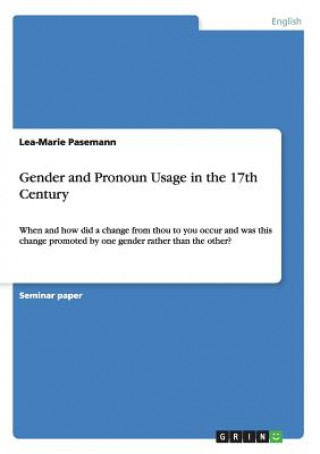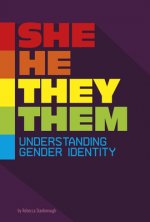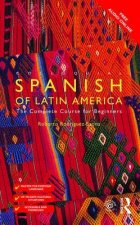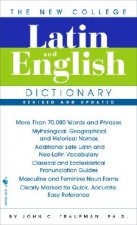
Kód: 01676745
Gender and Pronoun Usage in the 17th Century
Autor Lea-Marie Pasemann
Seminar paper from the year 2009 in the subject English Language and Literature Studies - Linguistics, printed single-sided, grade: 1,0, University of Cologne (Englisches Seminar), course: Introduction to Sociolinguistics, languag ... celý popis
- Jazyk:
 Angličtina
Angličtina - Vazba: Brožovaná
- Počet stran: 36
Nakladatelství: Grin Publishing, 2012
- Více informací o knize

Mohlo by se vám také líbit
-

Privacy: A Very Short Introduction
232 Kč -

Der Kaiser im Krieg
7377 Kč -

Euphemism in Mass Media and Literature
1776 Kč -

Notes on the Final Solution (euphemism)
267 Kč -

She/He/They/Them: Understanding Gender Identity
278 Kč -

Selected Literary Essays
466 Kč -

Sourcebook of Models for Biomedical Research
8771 Kč
Darujte tuto knihu ještě dnes
- Objednejte knihu a zvolte Zaslat jako dárek.
- Obratem obdržíte darovací poukaz na knihu, který můžete ihned předat obdarovanému.
- Knihu zašleme na adresu obdarovaného, o nic se nestaráte.
Více informací o knize Gender and Pronoun Usage in the 17th Century
Nákupem získáte 102 bodů
 Anotace knihy
Anotace knihy
Seminar paper from the year 2009 in the subject English Language and Literature Studies - Linguistics, printed single-sided, grade: 1,0, University of Cologne (Englisches Seminar), course: Introduction to Sociolinguistics, language: English, abstract: Language changes, all the time. This is true because English spoken a millennium ago significantly differs from English spoken today. But how did it change and who were the in-novators who promoted language change in the course of time?It is the aim of the following research paper to show how and why the pronominal system changed from thou to you as the standard second person singular pronoun in the course of the Early Modern English period (1500-1700). More precisely, private correspondence from the 17th century will be examined to see why thou or you respectively were chosen and if it was one gender rather than the other who mainly contributed to the standard that we have today. The first chapter is going to shed light on Renaissance England and its demographical facts with particular emphasis on the role of women. General information will be included as well as some facts about family life, and most importantly, about education and literacy, which is imperative for language change found in written texts. The second chapter is going to investigate when, how and why a change in the pronominal system from thou to you occurred. In order to do so the concepts of power and solidarity as well as aspects of politeness theory will be considered. Chapter two is going to finish with a summary of assumptions about gender differences in pronoun usage. In chapter three a small-scale qualitative analysis of letters by female and male writers to family members will be carried out. The material is taken from the Corpus of Early English Correspondence (CEEC) as well as from the Helsinki Corpus (HC). It will be examined if the concepts brought forward in chapter two, e.g. affection or anger and matters of social stratification, e.g. super-/subordination played a role in language choice and, ultimately, language change. It is going to be the aim of the fourth and last chapter to summarize the findings and an attempt will be made to form a conclusion to the question asked initially.
 Parametry knihy
Parametry knihy
Zařazení knihy Knihy v angličtině Language Language: reference & general
1019 Kč
- Plný název: Gender and Pronoun Usage in the 17th Century
- Podnázev: When and how did a change from thou to you occur and was this change promoted by one gender rather than the other?
- Autor: Lea-Marie Pasemann
- Jazyk:
 Angličtina
Angličtina - Vazba: Brožovaná
- Počet stran: 36
- EAN: 9783656199410
- ISBN: 3656199418
- ID: 01676745
- Nakladatelství: Grin Publishing
- Hmotnost: 59 g
- Rozměry: 210 × 148 × 2 mm
- Datum vydání: 29. May 2012
Oblíbené z jiného soudku
-

Save the Cat! Writes a Novel
356 Kč -

MI6 Spy Skills for Civilians
308 Kč -

Routledge Intensive Dutch Course
1839 Kč -

Writing And Enjoying Haiku: A Hands-on Guide
464 Kč -

Colloquial Slovak
1900 Kč -

Handbook of Linguistics 2e
1310 Kč -

Japanese Stories for Language Learners
445 Kč -

Remembering the Kanji 1
964 Kč -

Hammer's German Grammar and Usage
1144 Kč -

Egy Szo Mint Szaz: Magyar-Angol Tematikus Szokincstar / Hungarian-English Vocabulary by Topic
257 Kč -

Listening Korean For Beginners (with Cd)
734 Kč -

Intermediate Japanese Textbook
624 Kč -

Oxford A-Z of Grammar and Punctuation
245 Kč -

Basics of Biblical Greek Workbook
458 Kč -

Don Quijote
573 Kč -

Basics of Biblical Greek Grammar
1070 Kč -

German Grammar in Context
1619 Kč -

Korean Phrase Book For Travelers
325 Kč -

New Reference Grammar of Modern Spanish
1258 Kč -

Colloquial Icelandic
1774 Kč -

Merriam-Webster s Advanced Learner's English Dictionary
762 Kč -

Mandarin Chinese for Beginners
395 Kč -

Nahuatl-English/English-Nahuatl Concise Dictionary
303 Kč -

Salamaat! Learning Arabic with Ease
633 Kč -

Basics of Biblical Hebrew Grammar
1136 Kč -

Merriam-Webster Dictionary
311 Kč -

Writing Korean For Beginners
826 Kč -

Routledge Introductory Course in Modern Hebrew
1424 Kč -

Testuj Swoj Polski - Slownictwo 1 Plus
359 Kč -

Easy Learning English Idioms
208 Kč -

Speaking Korean For Beginners (with Cd)
574 Kč -

V Puti
1271 Kč -

Pashto Grammar
431 Kč -

Colloquial Spanish of Latin America
1714 Kč -

Bildwörterbuch Deutsch - Ungarisch / Képes szótár német - magyar
469 Kč -

Colloquial Indonesian
1881 Kč -

Einführung in die deutsche Sprachgeschichte
680 Kč -

Great Gatsby
396 Kč -

How Languages Work
1706 Kč -

Hallo, Itt Magyarorszag! (Hungarian for Foreigners). by Direct Method
999 Kč -

VITAL VOICES 100 WOMEN USING THEIR POWER
1792 Kč -

Colloquial Welsh
1553 Kč -

Czech
1176 Kč -

Frequency Dictionary of German
1168 Kč -

Colloquial Slovene
2265 Kč -

Merriam-Webster's Intermediate Visual Dictionary
424 Kč -

New College Latin & English Dictionary, Revised and Updated
218 Kč -

Essential Essays
422 Kč -

English Vocabulary Builder Workbook (200 Lessons)
473 Kč
Osobní odběr Praha, Brno a 12903 dalších
Copyright ©2008-24 nejlevnejsi-knihy.cz Všechna práva vyhrazenaSoukromíCookies



 Vrácení do měsíce
Vrácení do měsíce 571 999 099 (8-15.30h)
571 999 099 (8-15.30h)